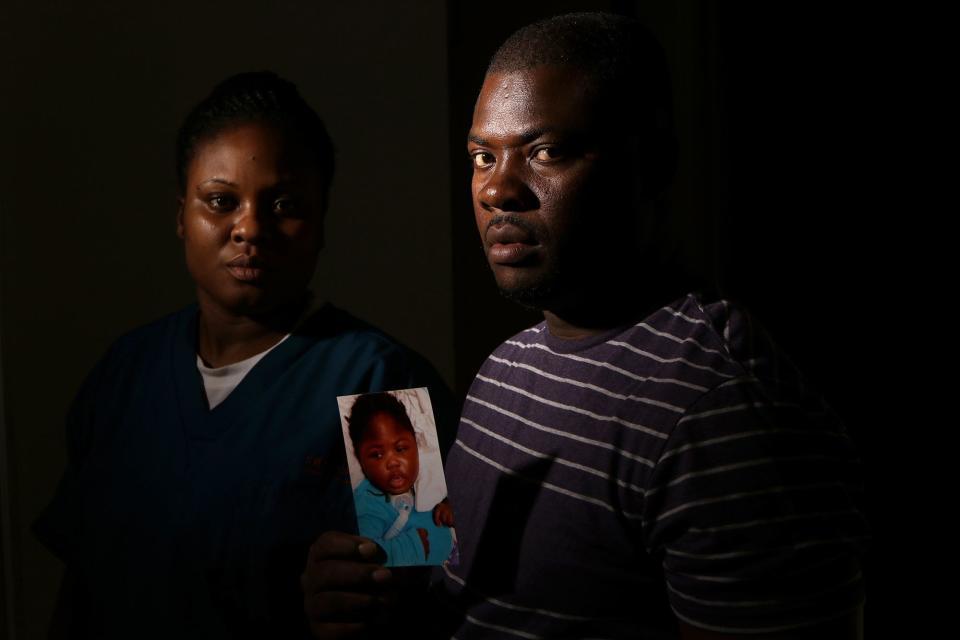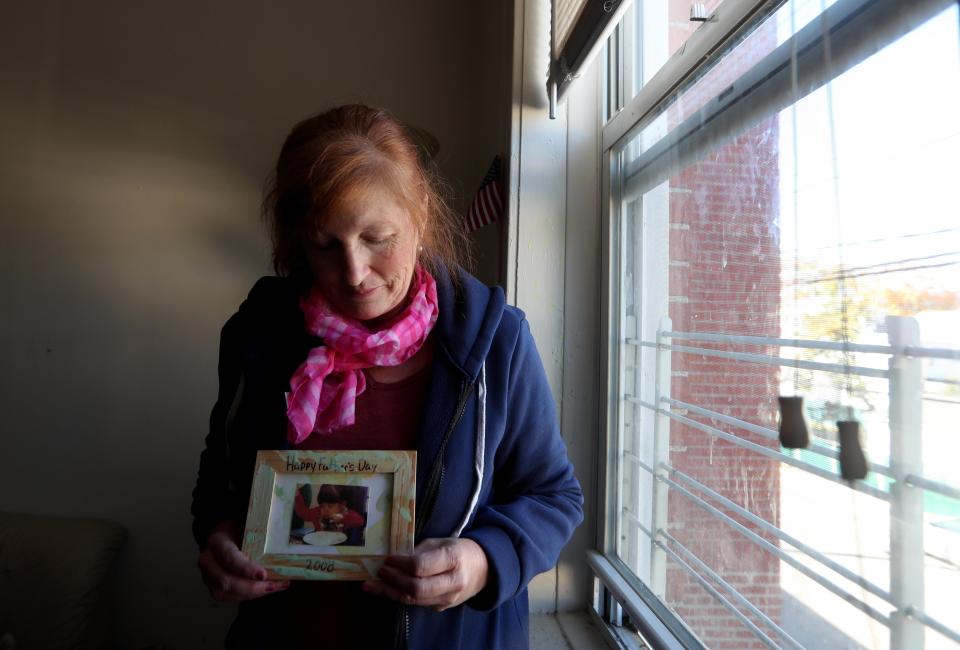Feds impose $600,000 fine on New Jersey nursing home after 11 children die

WOODLAND PARK, N.J. – The federal government has imposed a $600,000 fine on a New Jersey nursing home where 11 children died and 36 became sick during a virus outbreak last fall.
The penalty results from inspections by state and federal health officials during the outbreak that found conditions at the Wanaque Center for Nursing and Rehabilitation posed an “immediate jeopardy” to the lives and health of the facility’s 53 ventilator-dependent children and 150 other pediatric and elderly residents.
Inspectors described lapses in hand-washing and infection control, substandard care, a lack of involvement by the medical director, and poor oversight by the facility's administration. Federal inspectors said those alleged failures “directly contributed” to the inability to prevent the outbreak and contain it once it started, leading to the deaths.
Those conditions existed from Oct. 9, the day the center learned that one of its patients had died of adenovirus, to Nov. 16, according to a letter from Lauren D. Reinertsen of the regional office for the Centers for Medicare and Medicaid Services, which regulates nursing homes.
The center is now in compliance with federal and state regulations, according to officials. But it is still barred from admitting pediatric ventilator patients while awaiting state approval for its written infection-control plan.

Wanaque center appeals
The Wanaque center strongly disputed the findings in the federal inspection report, first described this week by NorthJersey.com and the USA TODAY Network.
It is appealing the federal inspectors’ findings because “their conclusions are so wrong and so damaging,” Paul Fishman, the former federal prosecutor who represents the center’s owners, said in an interview Friday with NorthJersey.com.
A spokesperson for the federal agency, however, said it "stands behind the findings” in its report, which “stemmed from direct observation, interviews with facility leadership and staff, and medical record reviews.”
“We will continue to demand accountability from facilities that fail to meet the fundamental health and safety needs of the patients and residents they serve,” the spokesperson said.
The center has appealed to an Administrative Law judge at the Department of Health and Human Services and also asked for an independent mediator to try to resolve the dispute informally, before it goes to a judge. A conclusion is likely to take months.
The legal debate over responsibility for the catastrophe may obscure the disturbing details of how some of the Wanaque children spent their final days. Those details are contained in the 114-page federal inspection report of the facility.
More: Staff failures led to 11 deaths at New Jersey care center, report says
Inspectors cite poor care
Some children were wracked with fever for days before the staff sent them to the hospital, where two died within hours of arriving at the emergency room, according to federal inspectors. Another child spent 19 days in the hospital before being sent back to the nursing home with a hole punched in her airway to help her breathe.
Even after the state had advised the Wanaque center how to control the outbreak of adenovirus, at least two children who’d been free of symptoms – but had roommates who were sick – became ill themselves and died, federal inspectors wrote, citing medical records.
The nursing home “failed to provide timely interventions and care in accordance with professional standards of practice,” the inspectors wrote. That pattern of substandard care put all of the home’s residents in jeopardy, they found.
The team from the federal Centers for Medicare and Medicaid spent five days at the facility in mid-November, at the peak of the outbreak. The team included specialists in infection control and epidemiology, and surveyors and managers from the agency’s regional office in New York, an agency spokesperson said.
Lawyers for the center say the findings about patient care were wrong. They are “sensational accusatory conclusions that lack any support whatsoever,” said Andrew Aronson, in a lengthy letter to the federal agency. The inspectors did not speak with medical professionals at the center about the care of the patients cited, he said.
One child whose case was highlighted by the inspectors was bleeding from his trachea, the airway in the neck where the ventilator tube connects, when he was taken to the hospital on Oct. 20. His nurse had noted blood in the feeding tube to his stomach the day before. He never made it out of the emergency room, dying there less than four hours after he arrived.
The emergency room doctor who treated two patients from the Wanaque center told NJ.com in November that the two boys were in “irreversible shock upon arrival.”
When the child arrived at the hospital, he had already been sick for eight days: his temperature had spiked at 103.5 degrees on Oct. 12 and came down only for short periods as nurses alternated doses of Tylenol and Motrin, the report said, citing medical records. Six days before he died, the boy’s temperature was 103.9. The nurses in the center also noted that his heart rate was abnormally fast – 140 or 150 times a minute, the report said.
The nurses repeatedly suctioned large amounts of thick secretions from his breathing tube, the report said. They tried cooling measures, such as flushing his feeding tube with ice water, but nothing worked. Ultimately, the doctor ordered them by telephone to send the boy to the hospital via ambulance.
He died there soon after arriving, having spent his short life suffering from cerebral palsy, convulsions, brain damage due to lack of oxygen – and finally, adenovirus.
The boy became ill after the outbreak was already reported as adenovirus to the state Health Department and the center said it had implemented the state’s infection control recommendations. But the boy’s roommate – from whom he was not separated – was already sick, the report noted.

Doctor: outbreak 'unavoidable'
In a rebuttal to the federal report’s findings, Edward J. McManus, an infectious disease specialist hired by the Wanaque center at the direction of the state, noted that adenovirus has a two-week incubation period.
Nearly all the residents of the pediatric ventilator unit had been exposed by the time the nursing home learned on Oct. 9 that adenovirus had caused the death of one of the children, he wrote. When they did learn, additional precautions were taken.
Nothing the center could have done "could have prevented its residents from being exposed to the virus,” he wrote, in a statement submitted to the federal mediator. The outbreak was “unavoidable”; its spread and tragic results were due to its severity and the vulnerability of the center’s patients.
Adenovirus 7, the strain that infected Wanaque, is one of the most difficult strains of the virus to contain, and the young patients at the center – who relied on ventilators to breathe and, in many cases, feeding tubes for nutrition – were particularly susceptible.
More: Killer virus outbreak from mom for weeks
Days with high fever
Another child who died in the hospital emergency room was feverish for a week at the nursing home – with a temperature reaching 104.6 one day – before being sent to the hospital.
The boy, who had brain damage and was ventilator-dependent, was treated with antibiotics at the center but they didn’t help, the report said, citing medical records. He died within five hours of his arrival at the emergency room on Oct. 17.
And another child who survived adenovirus spent 19 days in the hospital before returning with a new tracheostomy, an opening into the neck that allows air to enter the lungs through a tube.
The child’s temperature bounced around from 101 to 104 degrees for five days before she went to the hospital, the inspectors noted, writing that the pediatric medical director and the nurse practitioner “waited one week before sending (the child) to the hospital. This delay in treatment and transfer resulted in the resident returning with a tracheostomy.”
Aronson said the federal inspector’s report “inappropriately focuses almost exclusively on whether and when (the residents) were running a fever.” Some of the children ran fevers often, wrote Aronson. He added that the child who received a tracheostomy had been expected to get one even before the outbreak occurred.
The report “substitutes the opinion of federal surveyors for the medical judgment of the licensed, experienced medical professionals who have attended and cared for these residents every day for years," Aronson wrote.
The outbreak was “a tragic event,” Rowena Bautista, the center’s administrator, said in a statement. But it was "not caused by any delayed treatment or any other unfounded allegation contained in the [federal] CMS Report.”
This article originally appeared on North Jersey Record: Feds impose $600,000 fine on New Jersey nursing home after 11 children die
